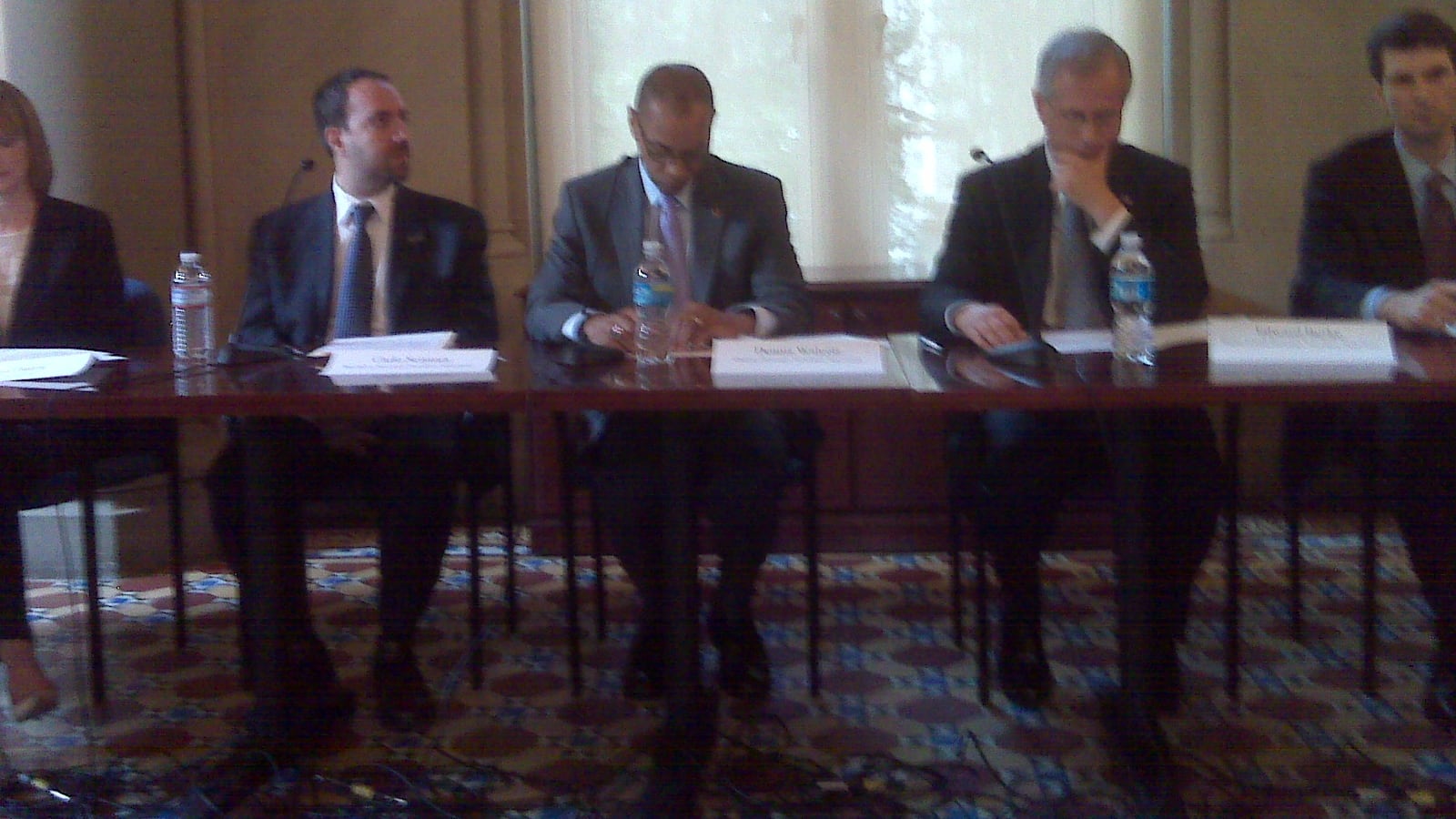This piece was reported by Philissa Cramer and Anna Phillips.
The mayor’s top education aide is the new president of the Board of Education, Joel Klein remains chancellor, and Mayor Bloomberg is vowing to stay the course of his reforms to the public schools — even though mayoral control expired at midnight yesterday.
“We’re trying to continue on as though mayoral control was approved,” Bloomberg said at a City Hall press conference this afternoon.
The actions occurred at a speedy meeting of the new Board of Education, which was hastily put together early this morning during a meeting at Gracie Mansion. (Read our live-blog of the meeting here.) Seven new Board members, appointed by the city’s borough presidents and the mayor, voted unanimously to keep Klein as schools chancellor. They also elected Dennis Walcott, Bloomberg’s deputy mayor for education, as its president.
Despite the meeting’s air-tight pace and agenda (it lasted only nine minutes and allowed no public comment period), there were small signs of dissent. The appointee of the Bronx borough president, Dolores Fernandez, abstained from votes to make Walcott president and to endorse a revised version of mayoral control that passed the Assembly two weeks ago.
In an interview after the meeting, Fernandez said she abstained from voting because she was caught off-guard by the quick, seemingly pre-determined pace of the meeting. Ruben Diaz Jr., the Bronx borough president, said the meeting was scripted, but Fernandez wasn’t looped into the plan. Diaz added that he might request that the Board convene again before September 10, the date members this afternoon set for their next meeting.
The borough president of Queens, Helen Marshall, who appointed Walcott to the boad, said she disagreed with Bloomberg’s third-grade retention policy, which holds students back who don’t pass key tests, when it was first anounced. But she said, “I know how to disagree and I know how to agree.” (The last time school board members opposed the retention policy, Bloomberg voted them off the board as it was known under mayoral control, the Panel for Educational Policy.)
“If we disagree with the mayor, there isn’t a borough president here who wouldn’t stand up and do something,” Scott Stringer, the borough president of Manhattan, said.
A pack of parents and other people were not allowed to enter the Board of Education meeting, which was held at Tweed Courthouse. Officials said the room had reached capacity. One parent activist, Jane Hirschmann, protested the meeting, saying city officials were keeping parents out.
It’s not clear exactly what will happen next. The last in its hasty list of votes was a motion to adjourn the Board of Education until September 10, the start of the next school year.
Asked whether he plans to convene community school boards, as the pre-2002 school governance law requires, Bloomberg said officials have not yet decided on a plan. “How can we convene them?” he said.
One of the groups that served in the place of the community school boards under mayoral control, the Community Education Council for District 1, passed a resolution this morning saying it would make itself available to become a community school board.


